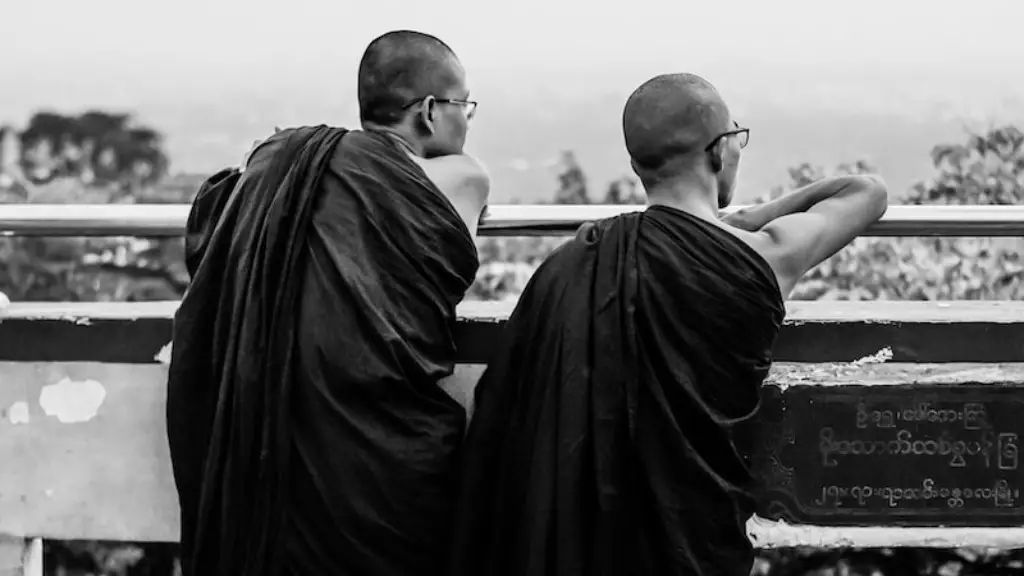Hinduism
Hinduism is an ancient and complex Indian religion that has its roots in ancient Vedic traditions. It has grown to become one of the world’s biggest religions with 1.2 billion adherents worldwide. Unlike many religions, Hinduism is not organized into one system of belief or practice, but rather follows the traditional rigid caste system divided into four categories. This makes it hard to define Hinduism as one straightforward religion.
History of Hinduism
Hinduism is believed to have originated over five thousand years ago in India and its earliest followers were Aryan settlers. Hinduism has gradually evolved and been adapted to accommodate new beliefs and practices over time. Nevertheless, its core precepts date back to ancient India and are rooted in the Vedas, Upanishads and Bhagavad Gita.
Beliefs of Hinduism
In Hinduism, the goal of life is to reach ‘Moksha’ or liberation from the cycle of samsara, in which souls are constantly reborn. Hindus believe in the existence of many gods and goddesses and practice rituals and beliefs that involve rituals such as aarti (involving the waving of a lamp), puja (a kind of prayer), and offerings. Hindus also believe in karma and reincarnation, meaning that their destiny is determined by the sum of their actions in this life and their past lives. Additionally, they believe in ahimsa or non-injury, and the importance of living in harmony with nature.
Religious Practices
Hinduism is comprised of a range of practices and beliefs, including mantras, meditation, yoga, and puja. Hindus practice meditation and yoga as a way to reach enlightenment, with some believing that these practices link the individual to the divine. Additionally, Hindus pay homage and offer puja to gods and goddesses through a variety of rituals.
Organization of Hinduism
The caste system is one of the main aspects of Hinduism that makes it stand out among other major religions. Contrary to other religions, the caste system assigns each person to a particular social rank. It is based on a person’s job, their education, and their wealth, and it’s seen as an essential part of Hinduism. Despite modernizing changes, the caste system still plays a role in many aspects of Hindu life today.
Impact of Hinduism
Hinduism has had a lasting impact on India, and on the world as a whole. For example, the philosophies of karma and reincarnation have been adopted by Buddhists, Western New Age spiritualists, and others. Additionally, Hinduism has also had an influence on India ’s art, literature, philosophy, and architecture. Furthermore, Hinduism is a major influence on other religions, such as Jainism, Buddhism, and Sikhism.
Conclusion of Is Hinduism An Organised Religion?
Hinduism is an ancient and complex religion that cannot be categorized as one single or organized religion. Despite having its origins in the ancient traditions of India, Hinduism has evolved over time and continues to do so today. While Hinduism follows the traditional Indian caste system, it also encompasses a range of rituals and beliefs that enable adherents to reach higher levels of spiritual enlightenment. Despite continuing to be a major force in India today, Hinduism has an even wider reach, impacting culture and art across the world.
Significant Hindu Holy Sites
Certain pilgrimage sites and holy places are of great spiritual importance to Hindus. This includes the ancient holy cities of Varanasi and Haridwar, both of which are located along the Ganges. Additionally, Mata Vaishno Devi and Amarnath Cave in Jammu and Kashmir are two of the most important Hindu pilgrimage sites in India, and devotees from across the country flock there to pray and receive blessings.
Cultural Impact of Hinduism
Hinduism has been a major influence on many facets of Indian life such as cuisine, music, philosophy, and festivals. Many festivals are celebrated throughout India such as Diwali, Holi and Navratri, which are based on important Hindu mythological events. Furthermore, Hinduism has had a great influence on Indian music, literature and art.
Relevance of Hinduism in the 21st Century
Despite its ancient roots, Hinduism remains one of the most vibrant and rapidly growing religions in the world. Hindus have made a huge impact in the world, whether it is in technology, medicine, finance and more. With over 1.2 billion adherents worldwide, Hinduism remains deeply ingrained in Indian culture and traditions.
Interaction Between Hinduism and Other Religions
Hinduism has its roots in India, but it has grown to incorporate many aspects of other religions such as Buddhism and Christianity. In India, Hindus are often in close proximity to other religions, and there is often interaction among believers of different faiths. This interaction has had a positive impact on Indian society and has fostered religious tolerance and understanding between communities. Additionally, Hindus often share festivals with other faiths and remain open to dialogue and exchange.
